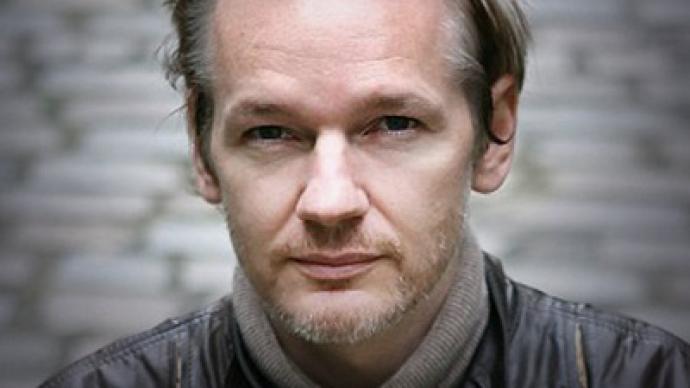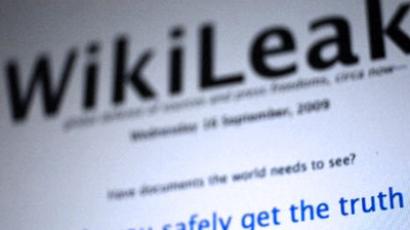Assange may face death, Manning kept in solitary

WikiLeaks founder Julian Assange’s extradition hearing to determine whether he will be sent to Sweden began Feb 7 in London. Meanwhile PFC Bradley Manning continues to sit in solitary confinement in the United States.
Assange’s lawyers argued based on Sweden’s past, Assange’s eventual extradition to the United States would be much more likely, and so would the possibility of facing the US death penalty. Douglas McNabb, an attorney and expert in international extraditions explained it is possible Assange could face the death penalty, but it would depend on the charges. That being said, it is highly unlikely Sweden or any other European country would extradite him to the US without assurances against the death penalty.As of yet, Assange has not even been charged in the US.“It takes a criminal change,” said McNabb. “If the US government indicts Mr. Assange then depending on whether Mr. Assange is in the UK or in Sweden, they would seek to have hum extradited from either one of the two countries.”He explained, extradition would be easier from the UK, because of extradition agreements. There are fewer agreements with Sweden; however there is a clause in a treaty with Sweden that would allow Assange to face trials and serve time in the US, and then be returned to Sweden. “It’s hard to tell how this is ultimately going to turn out,” remarked McNabb. All three nations are likely playing politics, he said, which complicates the extradition and cases as a whole. Domestic politics in each nation can also have an impact, especially in Sweden if he is extradited from the UK and does end up facing charges in Sweden. There are many moving parts in play. While Assange’s plight is in the public eye, Manning goes unseen in solitary confinement with few visitors. Amnesty International and a number of other organizations have called his treatment by the US military inhumane and unjust, leading to a number of activists and American politicians calling for change and demanding to see him.Manning is accused of leaking hundreds of thousands of classified US State Department and Department of Defense cables to the WikiLeaks website founded by Assange.Some have alluded the UK could protect Manning, McNabb explained that would be a highly political discussion between the US and UK, and is uncertain.David House, a MIT researcher and friend of Bradley Manning is one of the few people who has been allowed to visit Manning. House explained visiting Manning was a bizarre experience, which included an armed escort and a military convoy leading him to the military brig. “Bradley Manning looks like someone who has been in solitary confinement for the past seven months. He looks absolutely exhausted, and mentally I think he is having a very hard time coping with his conditions,” he said. “Right now he is kept in his cell for 23 hours a day. He has been kept under these conditions for the last seven months; despite the fact that three military psychologists have called for him to be removed from these conditions.”House himself has now become a target. As a friend and supporter of Manning, he was detained, his computer and other items seized by the FBI upon returning from a trip to Mexico this past October. He was approached by officers, questioned and his items held for 45 days until the ACLU intervened and issued a demand letter on House’s behalf. “To be harassed by the US government like this, I don’t know, I think it is intimidation on their part, trying to stomp out those who want to speak up about his [Manning] conditions,” House said. “I brought up my right to an attorney, but they said that since I was being detained not arrested, I couldn’t call my lawyer. So, there was some really odd legal grey area here.”He added, the US government has even attempted to bribe people in the Boston area to try and infiltrate the WikiLeaks organization and others affiliated with Manning. “Students at MIT have been followed on the Street, accosted by individuals calming to be Army CIA and FBI,” House said. “There’s this general fear now in Boston.” He said he has been following the Assange case, and fears he will eventually be extradited to the US.“There is a general feeling n the US they will do anything it takes to get to Assange. It’s my personal opinion, Manning is being selectively prosecuted and he is undergoing such harsh pressure because the US government is gunning for Julian Assange,” House remarked. He added, “The US government has overstepped its bounds one too many times and it’s time we as citizens stand up and say we’re not going to take this kind abuse.”
Dennis Kucinich, a Democratic US Congressional Representative from Ohio has been outspoken about the US military’s treatment of Manning, going as far as writing a letter to US Defense Secretary Robert Gates to request a visit with Manning. “I’m stating there are concerns I have as to whether the Constitutional rights of Private Manning are in fact being protected, because there is a Constitutional prohibition to cruel and unusual punishment,” Kucinich said. “To be kept in solitary confinement for 23 of 24 hours a day and month after month after month, it has a debilitating effect on anyone awaiting trial.”Kucinich has yet to receive a response from Gates, but said he will be pressing the matter.He explained he wants to ensure basic Constitutional rights are being respected. Holding a person, who was already deemed to have psychological concerns, in this capacity is damaging to their heath and their ability to go to trial. “I think it is important that myself, and other members of congress, do have access to someone who’s being kept in confinement awaiting trial at Quantico to see how he’s being treated. Guilty or innocent is a separate question,” Kucinich explained. “He cannot be subjected to cruel or unusual treatment while he is awaiting trial because some people think that he deserves it. That is not the way the American system of justice is supposed to work, and it’s not the way frankly military justice is supposed to work either.”It is important Congress is granted access in order to perform effective oversight, he said. With the Congress returning from break, Kucinich feels more members will step forward to perform proper oversight of Manning’s treatment. The lack of transparency and accusations Manning’s health is in danger raises many serious questions. “It does raise serious questions about basic fairness and our United States Constitution which has a specific constitutional prohibition against cruel and unusual punishment,” said Kucinich. “We cannot proceed this way in the American system of justice and maintain credibility. We have to follow the constitution as a guide.”He added, “You cannot simply decide through popular opinion or whatever that he must be guilty, otherwise they wouldn’t have changed him. That is not the way the system is supposed to work.”Kucinich explained this must be a strictly constitutional issue, and should not reflect partisan politics.















